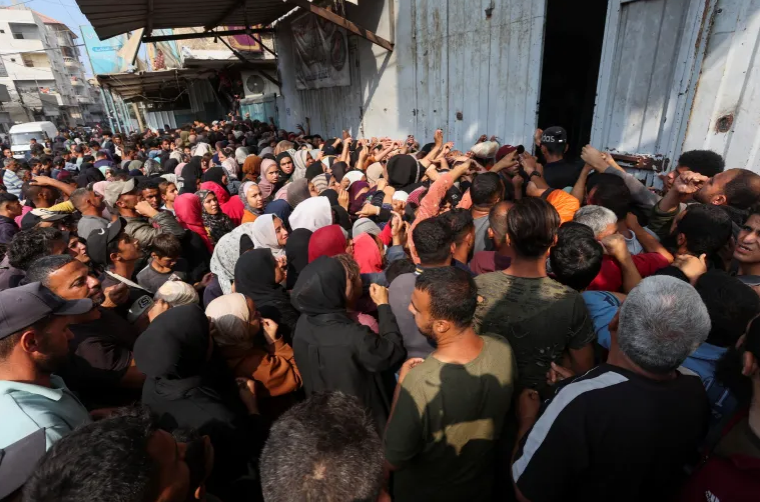-
15:50
-
11:20
-
12:15
-
16:30
-
17:00
-
13:00
-
12:20
-
17:00
-
16:00
Desperation and Despair: Life Amidst the Crisis in Gaza
In Gaza, despair has become an ever-present companion, not just for its residents, but for those attempting to provide aid and relief. Having spent a total of four years in Gaza, including six months amidst the ongoing conflict, I have never felt so powerless against the war machine, which relentlessly continues its destruction without pause. The cycle of violence seems endless, with an unyielding flow of ammunition and the constant threat of death.
During a conversation with a matriarch running a shelter for displaced people in Khan Younis, I asked about her hopes for peace. She pointed to a young girl clutching her mother’s hand, still sucking her thumb. “Her father was killed in a bombing just five days ago. They can’t even retrieve his body because the area is under constant fire,” she told me. “What hope?” In Gaza, hope is a rare commodity, and sleep is almost as precious. At night, the bombings begin as people try to rest. The sound of missiles followed by explosions has become so frequent that they no longer provoke any reaction, as the people have grown numb to the constant threat.
In my neighborhood in Deir el-Balah, each night is marked by this cycle. A missile's whistling, followed by an explosion, causes a commotion, waking dogs, donkeys, babies, and anyone brave enough to try to sleep. This leads to a chain of distressing noises — barking, crying, and general chaos. The attacks stop briefly, but are often followed by gunfire, only to restart again with the call to prayer at dawn.
The images that the world sees on the news are far more haunting in person. The devastation is so extreme that I often find myself deleting photos, as no image could capture the full scale of the destruction. The sounds of the crisis are equally overwhelming. People fight for the last remaining food at bakeries as supplies run out. The almost total blockade on commercial goods and humanitarian assistance leaves the population scrambling for anything they can find. Tragically, just days ago, a woman and two girls suffocated in a stampede in front of a bakery when a fight broke out over the scarcity of bread.
 A dear friend of mine, Khaled, who runs community kitchens across Gaza, worries daily that his kitchens will soon run out of food and have to close. The situation is so dire that words of comfort are hard to come by. “Don’t cry, be strong,” he would tell me, always reminding me of the strength of the Palestinian people, which continues to inspire despite everything.
A dear friend of mine, Khaled, who runs community kitchens across Gaza, worries daily that his kitchens will soon run out of food and have to close. The situation is so dire that words of comfort are hard to come by. “Don’t cry, be strong,” he would tell me, always reminding me of the strength of the Palestinian people, which continues to inspire despite everything.
In November, the Famine Review Committee published a report warning of the imminent threat of famine in northern Gaza. Since then, the situation has only worsened. On several occasions, I’ve seen people collecting flour spilled on the roads after aid trucks have been attacked. The lack of food is a constant reminder of the growing desperation.
The task of prioritizing the most vulnerable in Gaza has become a near-impossible challenge. With the entire population of approximately 2.3 million in urgent need of assistance, difficult decisions have to be made. Do you help a pregnant woman, a victim of domestic violence, or someone who is homeless and disabled? Each person is at risk, and the heartbreak of these choices will stay with us long after our work in Gaza concludes.
The pain and death that I and my colleagues have witnessed are beyond words. We have carried bodies off the streets some still warm, others already stiff, their faces grim with the horror of their last moments. Many of these bodies were young boys, senselessly lost, some of them dying slowly, alone and terrified, while their mothers wondered why their sons hadn’t come home. For the rest of the world, these children become just another statistic in the grim tally of lives